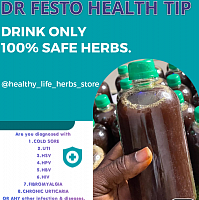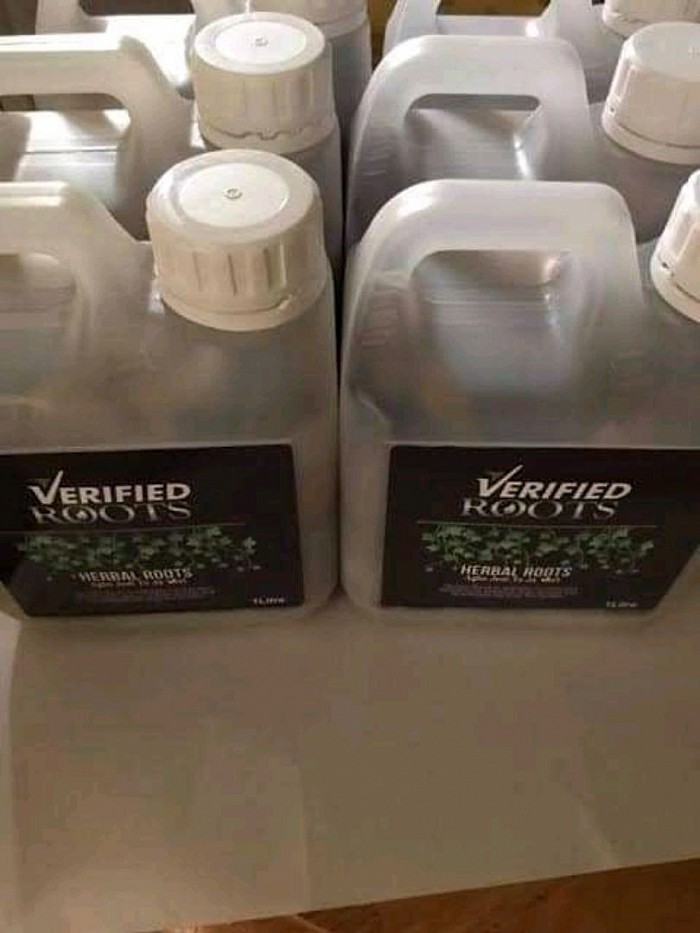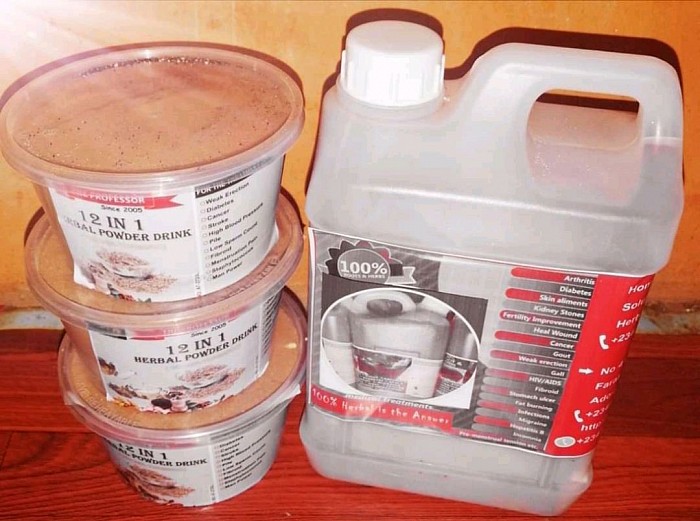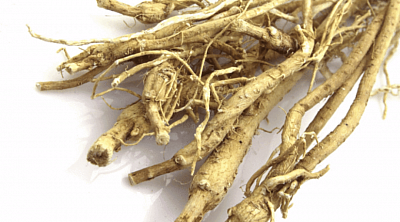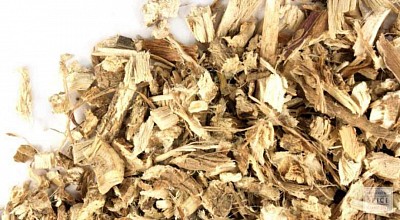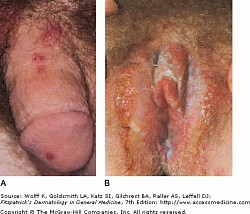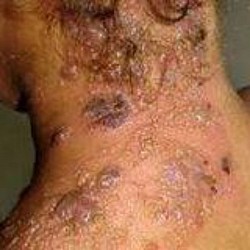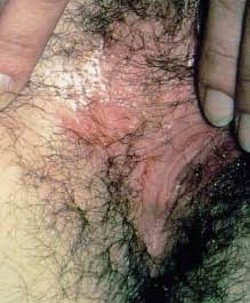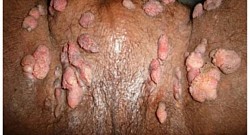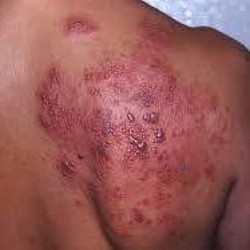Please scroll down, click on the indicator below to navigate to next page, and you can also click on menu bar for more options.
WELCOME TO DR FESTO HERBAL HOME
You are welcome to my herbal healing home. My Name is Dr Festo, specialist in herbalism, i have helped series of people all over the continent, and my herbal medicine has really worked out for different people, and it has been 100% accurate. And It's been more than 15 years that i have worked hard to satisfy my clients all over the world. What i need here are real people who really know what they want, and people who are ready to make their wish come through, no matter what it takes. But if I feel that you're serious and really need my help, then I will make my possible means and effort to make your dreams come true and will help you in priority. I compiled a list of herbal medicine which i am specialized with, and which I have amazing results also. I can help you with any trouble or circumstances you find yourself on. My beliefs is: To any problem there is always a solution to it. My work are tremendously influential and a positive answer from them will immediately solve your problem and it 100% Guaranteed.
History Of Herbs
This is a little about how herbs started serving us
The history of herbalism is closely tied with the history of medicine from prehistoric times up until the development of the germ theory of disease in the 19th century. Modern medicine from the 19th century to today has been based on evidence gathered using the scientific method. Evidence-based use of pharmaceutical drugs, often derived from medicinal plants, has largely replaced herbal treatments in modern health care. However, many people continue to employ various forms of traditional or alternative medicine. These systems often have a significant herbal component. The history of herbalism also overlaps with food history, as many of the herbs and spices historically used by humans to season food yield useful medicinal compounds, and use of spices with antimicrobial activity in cooking is part of an ancient response to the threat of food-borne pathogens
A BRIEF HISTORY OF HERBS
One of the oldest herbs in history is the popular Ginkgo biloba. Fossil records show that Ginkgo has been on earth at least since the Paleozoic period.
Egyptians wrote one of the earliest known recorded medical documents around the 1500 BC called Papyrus Ebers. This 20-meter long scroll documents 700 plant-based remedies.
The first recorded herbal study, called the Shennong Bencaojing, was written around 2,000 BC by the Chinese Emperor Shen Nong (The Divine Farmer). He is known for a multitude of innovations such as seed preservation, dietary revolution (he advocated a vegetable-focused diet) and tasted hundreds of herbs. The document contains descriptions and information for 300 plants.
During the Middle Ages, monks grew medicinal herbs. The liquor Bénédictine was made at the Benedictine Abbey of Fecamp in Normandy with 27 different plants and spices.
Native Americans introduced the colonists to plants and herbs such as Black Cohosh, which is still used today for relieving menstrual cramps and menopause symptoms.* In fact, the American College of Obstetricians and Gynecologists recognizes the value of Black Cohosh.
In the early 1900s, innovations in chemical analysis allowed scientists to extract and modify active ingredients from plants. In America, clashes within the medical community and a growing infatuation with isolated chemicals led to the decline of herbal remedies. However, even today 40% of all pharmaceutical drugs are based on botanicals.
Today, the World Health Organization estimates that 80% of people rely on herbal medicines for some part of their primary healthcare. In fact, 70% of German physicians prescribe plant-based medicines.
Herbal medicine’s effectiveness and safety have stood the test of time. The popularity and longevity of herb use throughout the world are undeniable evidence of the healing power of plants.
The use of herbal medicines has been extensively studied in Nigeria among adult and paediatric population with chronic illnesses such as herpes, hpv, epilepsy, hypertension, diabetes mellitus, cancer, sickle cell anemia, arthritis, asthma Etc… Only a very few studies have specifically evaluated herbal medicine use among the general population. The current study assessed the prevalence of herbal medicine use among a general population of adults without chronic illnesses. A high prevalence of 66.8% observed in our study is similar to the rate (69.4%) observed in another adult population (with or without chronic illnesses) in Nigeria where herbal medicines were used concurrently with conventional medicines. However, the current rate of herbal medicine use was higher than the rates reported in Nigeria among adults with hypertension (39.1%), diabetes mellitus (46%), epilepsy (47.6%) and cancer (51.9%), and similarly higher than the rates (37.8%- 40%), herpes virus (24.1%) reported among adult patients in a setting of a health maintenance organization in Central Texas city, United States of America and among a general population in Finland, where herbal remedies were defined in the context of alternative medicines. The current rate was also almost thrice the value (23%) reported in children with asthma, epilepsy and sickle cell anaemia.
Herbal medicines were used for a variety of health conditions ranging from malaria to blood enrichment. Contrasting findings have been reported in the United States where herbal remedies were predominantly used to treat common cold and for general health maintenance. Malaria was the commonest indication for herbal medicine use in this study similar to a previous study in Nigeria. However, only 20% of our population used herbal medicines to treat malaria compare to 80% in the previous study. The wide disparity in the proportions of herbal medicine users for malaria in both studies may be as a result of the differences in herbal medicine definition. While we define herbal medicines as the use of plants’ parts for medicinal purposes, other studies defined herbal medicines as finished, labeled medicinal products of plant or non-plant origin. Malaria is a common public health problem in Nigeria that may adversely affect both human and capital resources. The emergence of chloroquine and sulphadoxime/pyrimethamine resistant malaria in Nigeria may have informed the use of herbal medicines by the respondents.
It is of concern that one-fifth of herbal medicine users in our study had no specific reason for the use. The lack of knowledge of potential harms of herbal medicines may have encouraged this practice. Given the high proportion of the participants (66.8%) who were herbal medicine users and the wide range of indications for their use, it is remarkable that only 12 herbal medicine preparations, involving 22 plants species, were used by the respondents. This finding is however contrasting to other studies that reported the use of high number of different plant species for chronic diseases such as diabetes in South Africa, inflammatory diseases in South-western Nigeria, and a wide range of acute and chronic illnesses in India. The exclusion of participants with chronic illnesses may have accounted for the low use of herbal medicine preparations observed in our study. The range of herbal medicines used by the respondents is quite different from those reported in other studies in Nigeria, Finland and the United States. This may be explained by the varied health conditions and cultural differences in each of the populations studied. Of the 12 different herbal medicine preparations used by the respondents, four of them (‘agbo jedi jedi’, ‘agbo iba’, ‘ijebu ode’ mixture and splina) were in their crude forms, while the remaining eight were refined into packaged forms. The regulatory framework in Nigeria has encouraged local production of herbal medicines in refined packaged forms, hence the proliferation of packaged herbal medicines in the Nigerian markets. Only the eight packaged herbal medicine preparations are likely to be certified by the National Agency for Food Drug Administration and Control (NAFDAC
DR FESTO HERBAL HOME
I am a traditional herbal Dr and a spiritual healer, i am a herbalist specialize in healing those who are sick from deadly disease i have cure to all diseases. My herbs cure do not recognize long distance, i have worked on clients from different parts of the world from different professionals including medical doctors, lawyers, academic professors and among others. Even those who felt like it wont be possible received satisfactory results I will take the time to explain things to you, and provide you with honest advice, to what is best for your situation. I do not pressure anyone to apply my herbs, I always leave that decision up to you. I provide you with honest information, and when or if you decide to move forward, I am here to help. Thank you for taking the time to read, I look forward to your happiness and may the gods and goddess provide you all your desires
*Astragalus Root:
Herbs*Marsh Mallow Root:
THE FINAL SOLUTION TO ALL KINDS OF DISEASES
Dr festo Herbal Healing home we offer you the best organic herbs and natural remedies to all kind of diseases, We understand disease at a level beyond the superficial symptoms and strive to find a permanent resolution. Together with the patient, we aim to bring about a state of absolute health in everyone who consults us. we have studied the natural properties of natural herbs , their remarkable benefits, and developed a unique range of drops, capsules, bottle herbs and dried herbs. We have employed scientific testing methods and modern extraction processes to ensure the benefits of the herbs remain intact, all this at a very good price and excellent quality. We ship worldwide.
